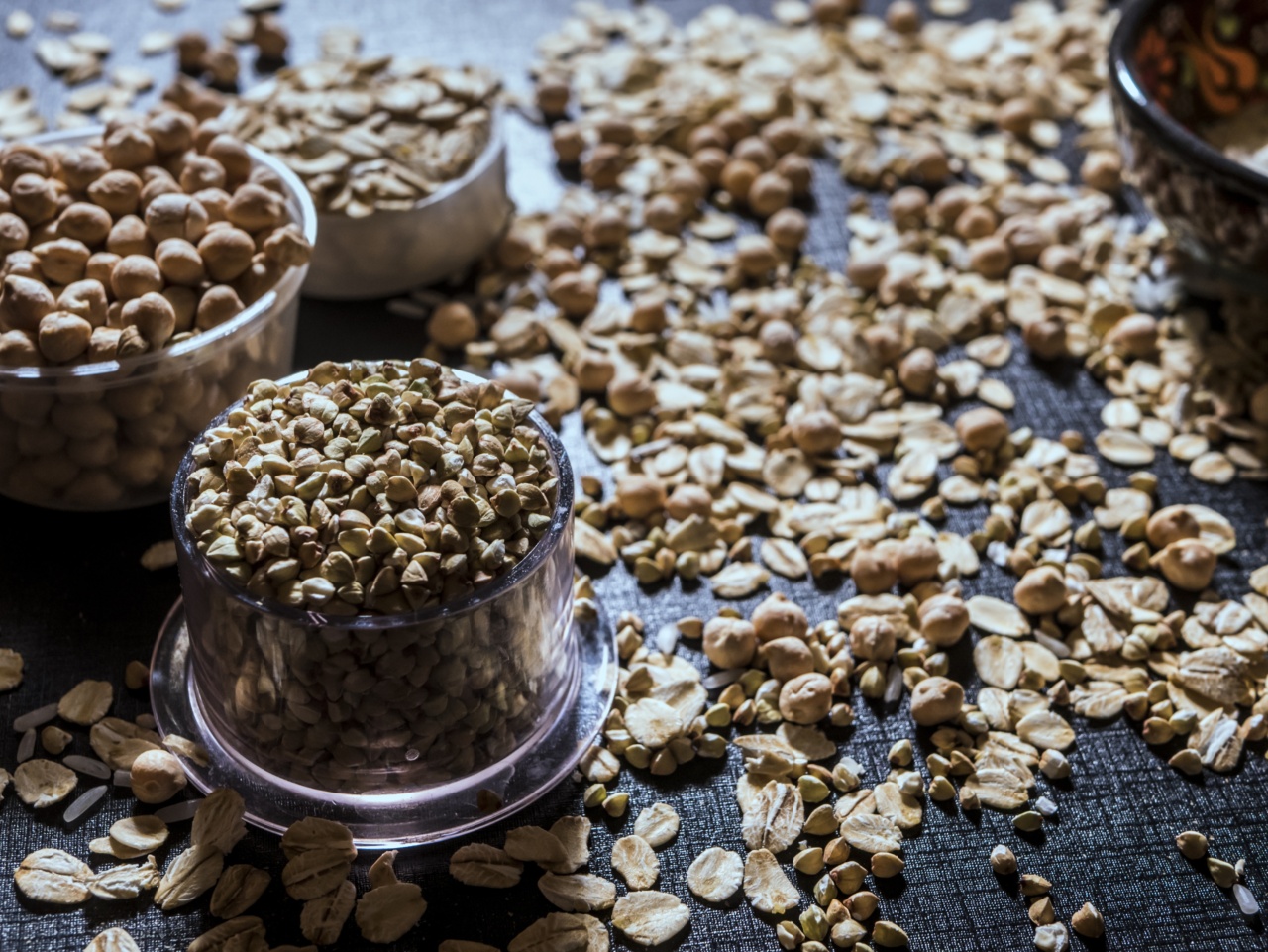Whole grains are a crucial part of a healthy diet. They are packed with fiber, vitamins, minerals, and other essential nutrients that can promote overall health. However, not everyone can tolerate or benefit from eating whole grains.
In fact, some people may need to avoid them altogether. In this article, we will discuss who should avoid whole grains and why.
People with Celiac Disease or Gluten Sensitivity
Celiac disease is an autoimmune disorder that affects about 1% of the population. It is characterized by an intolerance to gluten, a protein found in grains such as wheat, barley, and rye.
When people with celiac disease consume gluten, their immune system attacks their small intestine, leading to inflammation and damage to the lining of the intestine. This can cause a range of digestive symptoms, including bloating, gas, diarrhea, and stomach pain. Over time, it can also lead to malabsorption of nutrients, anemia, osteoporosis, and other serious health problems.
People with celiac disease must avoid all sources of gluten, including products made with wheat, barley, and rye. This means that they must avoid most bread, pasta, cereals, and other grain-based foods.
However, there are many gluten-free grains that can be safely consumed, such as rice, corn, quinoa, and buckwheat. These grains are not related to wheat, barley, or rye and therefore do not contain gluten.
In addition to celiac disease, some people may have a non-celiac gluten sensitivity, which means that they experience similar symptoms to celiac disease after consuming gluten, but do not have the same autoimmune response or intestinal damage.
People with gluten sensitivity may also benefit from avoiding whole grains or other sources of gluten.
People with Irritable Bowel Syndrome (IBS)
Irritable bowel syndrome (IBS) is a common digestive disorder that affects up to 15% of the population. It is characterized by a range of symptoms, including abdominal pain, bloating, gas, diarrhea, and constipation.
The exact cause of IBS is not fully understood, but it is thought to be related to changes in gut microbiota, stress, and/or food sensitivities.
For people with IBS, certain types of fiber may exacerbate their symptoms. This includes the type of fiber found in whole grains, known as insoluble fiber.
Insoluble fiber is important for maintaining bowel regularity and preventing constipation, but it can also aggravate diarrhea and other digestive symptoms in people with IBS.
Therefore, people with IBS may benefit from reducing their intake of whole grains or choosing grains that are lower in insoluble fiber, such as white rice, oatmeal, and quinoa.
They may also benefit from following a low FODMAP diet, which is a dietary approach that restricts certain types of carbohydrates that are known to trigger IBS symptoms.
People with Crohn’s Disease or Ulcerative Colitis
Crohn’s disease and ulcerative colitis are two types of inflammatory bowel disease (IBD) that affect the digestive tract.
Crohn’s disease can affect any part of the digestive tract, while ulcerative colitis only affects the colon (large intestine) and rectum. Both conditions cause inflammation and damage to the digestive tract, leading to symptoms such as abdominal pain, diarrhea, and fever.
For people with Crohn’s disease or ulcerative colitis, certain types of fiber can aggravate their symptoms and lead to further inflammation. This includes the type of fiber found in whole grains.
Therefore, people with IBD may need to reduce their intake of whole grains or choose grains that are lower in fiber, such as white rice or refined wheat products.
People with Type 2 Diabetes
Type 2 diabetes is a chronic condition in which the body cannot effectively regulate blood sugar levels. It is caused by a combination of genetic and lifestyle factors, including poor diet, lack of exercise, and obesity.
People with type 2 diabetes need to carefully monitor their carbohydrate intake and choose foods that do not cause rapid spikes in blood sugar.
Whole grains are often touted as a healthy source of carbohydrates for people with diabetes, as they are high in fiber and complex carbohydrates. However, for some people, even whole grains can cause spikes in blood sugar.
This may be due to the type of grain, the processing method, or individual variability in food tolerance.
Therefore, people with type 2 diabetes may need to limit their intake of whole grains or choose grains that have a lower glycemic index (GI). The glycemic index measures how quickly a food raises blood sugar levels.
Foods with a high GI, such as white bread and sugary snacks, cause a rapid spike in blood sugar, while foods with a low GI, such as whole grains and legumes, cause a slower and more sustained rise in blood sugar.
People with Other Food Sensitivities
Sometimes people may experience digestive symptoms or other health problems after eating whole grains or other foods, even if they do not have a diagnosed condition such as celiac disease or IBS.
This may be due to a food sensitivity or intolerance, which can cause a range of symptoms such as bloating, gas, diarrhea, eczema, joint pain, and headaches.
Common food sensitivities include lactose (found in dairy products), fructose (found in fruits and sweeteners), and histamine (found in fermented foods and aged cheeses).
Some people may also have an intolerance to certain types of grains, such as wheat, barley, or oats, due to the presence of specific proteins or carbohydrates.
If you suspect that you have a food sensitivity, it is important to speak with your doctor or a registered dietitian to determine the underlying cause and develop a personalized dietary plan.
Conclusion
While whole grains are a nutritious and important part of a healthy diet for many people, they may not be suitable for everyone.
People with celiac disease, gluten sensitivity, IBS, Crohn’s disease, ulcerative colitis, type 2 diabetes, or other food sensitivities may benefit from avoiding or limiting their intake of whole grains. If you have any concerns about your dietary needs or health status, it is always best to consult with a healthcare professional who can provide personalized advice.




























